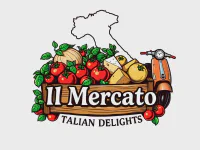Master Amsterdam Dutch: Engaging Online Lessons & Courses

Amsterdam Dutch Lessons & Courses
If you're planning to live in or visit Amsterdam, enrolling in Dutch lessons and courses is one of the best ways to immerse yourself in the local culture and improve your communication skills. With a variety of options available, from intensive language courses to casual conversation classes, Amsterdam Dutch lessons & courses cater to all levels, from beginners to advanced speakers. These lessons not only teach you the language but also enhance your understanding of the Dutch culture and society, making your experience in Amsterdam even more enriching.
There are numerous language schools and institutions offering Amsterdam Dutch lessons & courses. Among the most popular are the Nederlandse Taalunie and various private language schools that provide personalized instruction tailored to your learning goals. Classes typically focus on speaking, listening, reading, and writing skills, with interactive lessons that promote direct engagement. With both online and in-person formats available, you can choose the option that best fits your schedule and lifestyle. Validating your skills through certificates earned in these courses can also significantly boost your confidence and employability.
In addition to traditional classroom settings, many learners also take advantage of online resources for self-paced learning. Various apps and websites provide immersive lessons that allow you to practice Dutch anytime and anywhere. These platforms often incorporate engaging elements such as videos, games, and quizzes, making the learning process fun and interactive. Moreover, workshops and language exchange meetups are frequently held throughout the city, encouraging community interaction and fostering language practice in real-life situations.
Amsterdam Dutch lessons & courses not only prepare you for daily interactions but also deepen your cultural integration. Understanding the Dutch language enables you to appreciate local customs, traditions, and societal nuances that might otherwise remain inaccessible. This cultural exchange maximizes your experience and connection to the city, transforming your stay into a deeply fulfilling journey.
For those looking for specialized training, many courses focus on specific aspects of the Dutch language, such as business Dutch, Dutch for travel, or Dutch for academic purposes. These tailored classes focus on the vocabulary and phrases pertinent to your needs, enabling you to communicate effectively in various scenarios and enhancing your competency in the language.
Exploring the complexities of human behavior can provide a profound understanding of the reasons behind our decisions and reactions, as discussed in #.
Online Dutch Learning Platforms
For those unable to attend traditional classes, numerous online platforms offer excellent alternatives for learning Dutch in Amsterdam. Websites such as Duolingo, Babbel, and Rosetta Stone provide structured courses that you can access from home. Additionally, local schools may offer virtual classes that mirror their in-person offerings, allowing flexibility in your learning journey.
When comparing online Dutch courses, factors such as price, course duration, and interactive features are important. Some platforms offer intensive full-time courses, while others may provide shorter sessions geared towards specific skills. User experiences on platforms like Italki and Preply also highlight the importance of individual instructor interaction and personalized feedback, contributing significantly to the effectiveness of online learning.
User reviews of Amsterdam Dutch language apps showcase a variety of learning experiences. Many learners appreciate the accessibility of these apps, allowing them to practice at their own pace. However, some users note the need for a structured guide or a teacher to help with nuances that apps might not fully address. Yet, the convenience factor of being able to learn from almost anywhere remains a strong point for these platforms.
Cultural Integration through Language
Learning Dutch in Amsterdam also serves as a gateway to understanding the rich cultural tapestry of the city. Engaging with the language allows you to partake in local festivities, understand historical contexts, and interact more genuinely with locals, fostering a deeper connection to the community.
Language learning fosters cultural appreciation by enabling learners to grasp cultural references embedded in conversation, music, and literature. This understanding encourages meaningful dialogue, enriching both the learner's experience and their relationships with Dutch speakers.
Amsterdam offers numerous cultural events that provide language learners the opportunity to practice their skills while experiencing Dutch culture firsthand. Festivals, art exhibitions, and local markets are commonly held where learners can immerse themselves in the language and culture, further inspiring them to continue their studies.
Dutch Language Levels and Certifications
To gauge your progress in learning Dutch, it is essential to understand the Common European Framework of Reference for Languages (CEFR) levels, ranging from A1 (beginner) to C2 (proficient). Enrolling in courses that are aligned with these levels ensures that you develop language skills at an appropriate pace according to your proficiency.
Preparing for Dutch language certification often involves focused study sessions targeting the specific skills needed for proficiency exams such as the Staatsexamen Nederlands als Tweede Taal (NT2). These certifications validate your language skills for academic and professional opportunities in the Netherlands, making your preparation worthwhile.
Obtaining language certification can significantly benefit your career advancement, especially if you intend to work in a Dutch-speaking environment. Employers often seek candidates who can communicate effectively in Dutch, and certification can set you apart from other applicants. It demonstrates a commitment to language learning and an understanding of the local culture that employers value.
Effective Learning Techniques for Dutch
When mastering Dutch vocabulary, it is essential to combine traditional methods such as flashcards with modern techniques like spaced repetition. Engaging with native speakers through conversation partners or language exchange programs is also beneficial, allowing learners to use vocabulary in context and enhance retention.
Utilizing technology in language learning has become a vital strategy for many students today. Online resources such as podcasts, video lessons, and language apps provide exposure to authentic language use, enhancing comprehension and pronunciation skills. Additionally, downloading language learning apps affords you the flexibility to practice anywhere you go.
The role of immersion in learning Dutch cannot be overstated. Being surrounded by the language—whether through living in Amsterdam or participating in local events—strengthens proficiency and confidence. Engaging in everyday conversations and consuming local media can significantly accelerate the language acquisition process.
Private vs Group Dutch Lessons
Private lessons in Amsterdam offer tailored guidance, allowing students to work at their own pace. One-on-one instruction from skilled teachers can provide personalized attention and immediate feedback, addressing individual weaknesses and reinforcing strengths. This approach is particularly beneficial for learners with specific goals such as business communication or academic writing.
Group lessons, on the other hand, bring social benefits and cost-effectiveness. Learning alongside peers allows for collaborative activities and discussions, making the experience more dynamic. Group lessons also encourage healthy competition and motivation, fostering a supportive environment where learners can share insights and practice their skills together.
Finding the right balance between private and group learning can lead to the most effective outcomes. A combination of both approaches often works best—leveraging the personalized attention of private lessons while benefiting from the social interaction and practice opportunities that group classes offer. Ultimately, your choice will depend on your learning style, goals, and schedule.
Name: Amsterdam Dutch Lessons & Courses | Language Learn Online
Website: https://languagelearnonline.com/
Addresss: Herengracht 420, 1017 BZ Amsterdam, Netherlands
Phone: +31629462538
